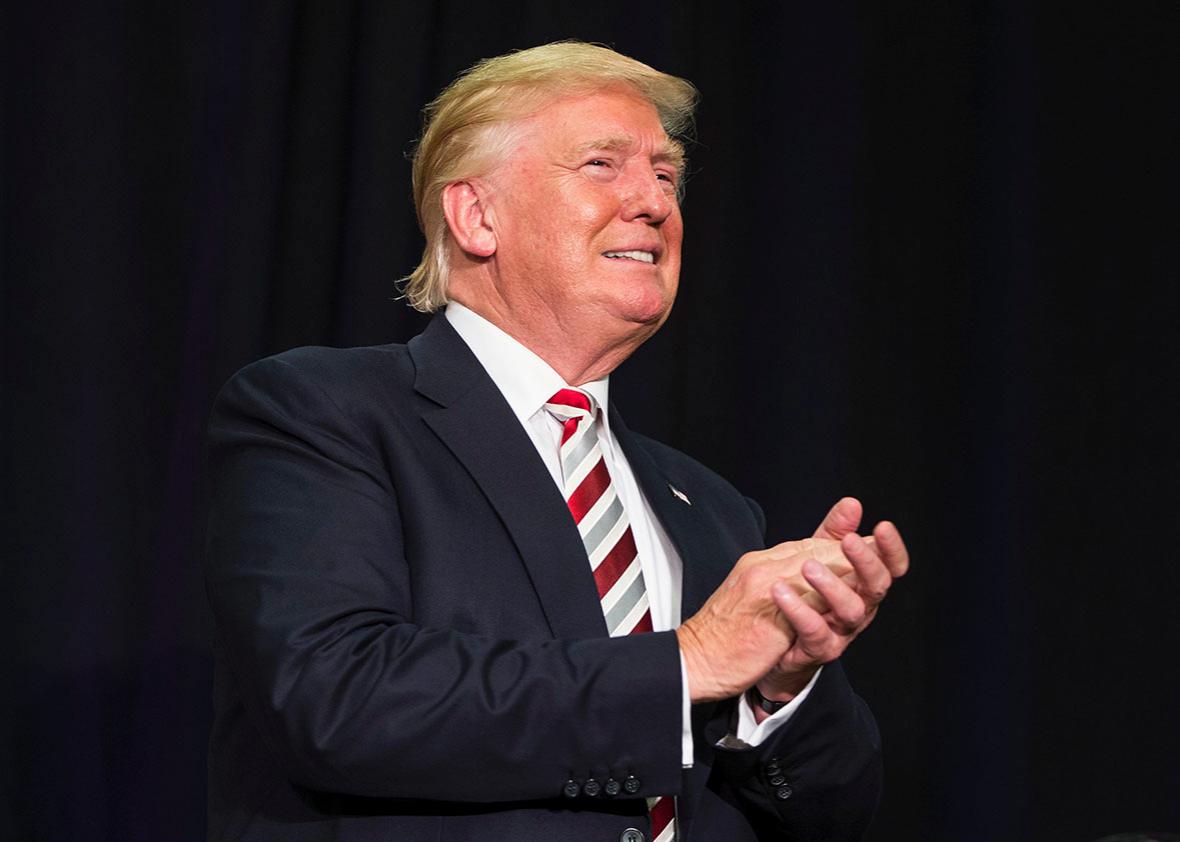This article appears in slightly different form in the Financial Times.
Traditionally, the presidential campaign experiences a lull between the summer conventions and the Labor Day holiday at the beginning of September. Traditionally, political parties do not nominate someone as unstable and desperate for attention as Donald Trump. Rather than suffer a moment’s repose, the Republican nominee has spent the past week testing the proposition that his own party will continue to support him no matter how outrageous and offensive his behavior.
For Republicans who no longer have to face voters, Trump has made the decision to opt out an easy one. Both former Bush presidents have declined to endorse him or appear at their party’s convention. Powerful criticism of Trump from Mitt Romney, the 2012 Republican nominee, has helped to put Utah in play for the Democrats for the first time in half a century. Another recent defector is Richard Hanna, a Republican congressman from upstate New York who said last week that he would vote for Hillary Clinton—and who is not running for re-election.
Conservative foreign policy eminences, intellectuals, and journalists have been breaking ranks even more volubly. The columnist George Will declared in June that he was quitting the Republican Party, prompting the predictable Twitter assault from Trump. Other leading voices on the right—including Charles Krauthammer, William Kristol, Max Boot, David Brooks, Robert Kagan, and David Frum—have declared positions ranging from could-never-vote-for-Trump to will-vote-for-Clinton.
For candidates and party officials, however, calculation has pre-empted principle. Most do not think they have the luxury of conscience when it comes to breaking with Trump. Part of this is simple fear. Trump, a petulant and vindictive man, requires little provocation to unleash a storm of personal invective, along with his volunteer militia of digital trolls, at anyone who dares to challenge him. The larger factor is political realism. Republican Senate and House of Representatives candidates know that regardless of how strongly they may object to him, their fortunes are largely tied to their party’s nominee.
This is the predicament in which Paul Ryan finds himself. The speaker of the House says he hasn’t written Trump a “blank check.” That, however, is precisely what he did when he endorsed him, with exquisitely bad timing, just as Trump was going into bigoted paroxysms about the unfairness of a “Mexican judge” ruling in a lawsuit filed against him. A moving public plea to Ryan from Khizr Khan, the father of the Muslim American Army captain killed in Iraq in 2004, prompted no change of heart. Neither did Trump’s extraordinary attack on Khan and his wife, nor even Trump’s ostentatious delay in endorsing Ryan for re-election. There appears to be no limit to Trump’s overdraft protection from party leaders.
While morally untenable, their position makes sense from the perspective of preserving the Republican congressional majority. The past two decades have seen a trend away from ticket-splitting—voting for one party’s presidential candidate and the other party’s candidates for House and Senate races. This pattern suggests that if Trump goes down to a crushing defeat in November, Republican Senate candidates are likely to fall with him in key races in Pennsylvania, Wisconsin, Ohio, Florida and New Hampshire. Efforts by down-ballot candidates to separate themselves from their party’s nominee could easily make matters worse, alienating the base of Trump supporters without bringing meaningful gains among Democrats or swing voters.
This leaves survival-minded Republican politicians in a pretzel-like posture. No one has faced a more yogic contortion than John McCain, the Arizona senator and 2008 Republican nominee. Trump appalled everyone last summer with his ghastly comment that McCain, a former prisoner of war who was tortured by the North Vietnamese, was not a genuine war hero because he had been captured. Last week, McCain issued a written statement saying he felt “morally bound to speak” in response to Trump’s comments about the Khan family. As with Ryan, Trump pointedly postponed endorsing McCain in his upcoming primary race. For all that, McCain has not revoked his own endorsement of Trump.
At some point the dam may burst, either because the level of cognitive dissonance required becomes intolerable, or because politicians perceive their interests to be served by formally breaking with Trump. This was the bet Ted Cruz made at the Republican convention, when he was booed for refusing to endorse Trump, telling party members to vote with their consciences. The Texas senator is gambling that standing against Trump will make him look principled and prophetic in 2020.
A wider Republican abandonment of Trump, if it comes, will be about self-preservation. Last week, Mike Coffman, who represents a Colorado swing district with a large Latino population, aired an anti-Trump commercial in English and Spanish. The ad is titled “Country First,” echoing the charge that those surrendering to Trump are putting party ahead of country. It is a moral stand—as well as a candidate’s desperate effort to save himself.
